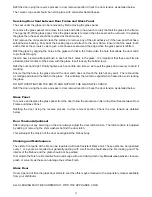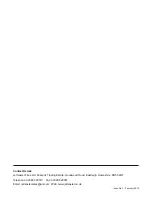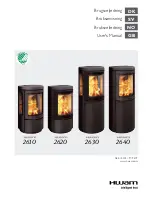
Commissioning
After Installation Is Complete
In your own interest and for safety, in the United Kingdom, it is the law that all solid fuel appliances are
installed by competent persons, a registered installer or approved by your local building control officer.
The
Heating Equipment Testing and Approval Scheme (HETAS) require its members to work to recognised
standards.
Door Tension Adjustment
After installation and before commissioning adjust the door latch tension. The latch tension is adjusted by adding
or removing the shim washers behind the outer door latch.
This will adjust the tension of the door seal against the firebox body.
Air Supply
When commissioning the fire ensure that the air supply is adequate for the fire. Particular attention should be
observed if there is a ceiling fan or extractor fan in the room or adjoining room as this may have an effect on the
draw of the flue / fire. The fire should be tested with the ceiling or extractor fan on and with all inter-connecting
doors to the room closed and then open. If required additional air may be required to overcome the extractor or
fan pressure.
Smoke Draw Test.
Ensure appliance is not alight.
Warm chimney for 10 minutes using a blowlamp or similar heating device.
Place a smoke pellet in the wood tray or basket grate towards the front of the opening of the fire and ignite the
pellet.
Open the air control valve and close the door.
Check that the smoke is being drawn up the flue and that it is discharging satisfactory at the flue terminal.
If the test fails then the flue and air supply should be checked. If this cannot be resolved then further investigation
will be required or seek expert advice.
Light the fire as detailed in the lighting instructions and allow the appliance to heat up to its operating temperature
checking that no spillage occurs. There may be some fumes due to the burning off of protective oils and paint
curing. This should not be confused with spillage.
When the operating temperature has been reached, open the door slowly and carry out a spillage test with a
smoke match around the door opening.
If excessive spillage occurs then the flue and air supply should be checked. If this cannot be resolved then
further investigation will be required or seek expert advice. Advise the customer not to use the fire until expert
advice has been sought.
Notice Plate
Ensure that any notice plate is provided in line with the building regulations J4. The notice should contain
information on the performance characteristics of the hearth, fireplace, flue or chimney and is to be fixed in an
appropriate place.
Cleaning Up
Immediately after installation, the visible parts of the fire should be cleaned up. Thereafter, the surfaces may be
kept clean by using a light brush to remove dust and by occasional wiping with a lint-free cloth.
22
Summary of Contents for INSET STOVE MKIII 60i
Page 35: ...35...















































